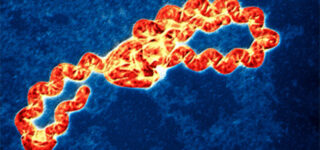Dear Editor,
In their recent article, Gusmão et al. provided interesting data 1 . Vitamins may play a significant role in ameliorating the pathological effects of Chagas disease. For example, benefits have been observed following the administration of ascorbic acid; supplementation with high doses of vitamin C have led to augmented clearance of trypanosomes, especially trypomastigotes 2 . Interestingly, the activity of ascorbate peroxidase is enhanced significantly by vitamin B12, and vitamin C augments the anti-parasitic activity associated with vitamin B12. Another recent study suggests that the combined use of gentian violet, ascorbic acid, and light to sterilize blood infected with Trypanosoma cruzi effectively prevents transfusion-based transmission of Chagas disease 3 . Other similar, recent data suggest that vitamin B12 may be of clinical value in the treatment of Chagas disease; vitamin B12 activity against trypomastigotes and epimastigotes is particularly significant 4 . Vitamin B12 mediates this anti-parasitic role by accentuating superoxide dismutase activity, which leads to augmented intracellular production of reactive oxygen species.
The above discussion points highlight that the combined use of vitamins C and B12 may play a significant role in the management of Chagas disease.
REFERENCES
1. Gusmão AS, Castanho RE, Andrade RF, Farsetti CM, Mathias AB, Therezo AL, et al. Vitamin C effects in mice experimentally infected with Trypanosoma cruzi QM2 strain. Rev Soc Bras Med Trop 2012; 45:51-54. [ Links ]
2. Marim RG, Gusmao AS, Castanho RE, Deminice R, Therezo AL, Jordão Jr AA, et al. Effects of vitamin C supplementation on acute phase Chagas disease in experimentally infected mice with Trypanosoma cruzi QM1 strain. Rev Inst Med Trop Sao Paulo 2012;54:319-323. [ Links ]
3. Ramirez LE, Lages-Silva E, Pianetti GM, Rabelo RM, Bordin JO, Moraes-Souza H. Prevention of transfusion-associated Chagas’ disease by sterilization of Trypanosoma cruzi-infected blood with gentian violet, ascorbic acid, and light. Transfusion 1995; 35:226-230. [ Links ]
4. Ciccarelli AB, Frank FM, Puente V, Malchiodi EL, Batlle A, Lombardo ME. Antiparasitic Effect of Vitamin B12 on Trypanosoma cruzi. Antimicrob Agents Chemother 2012; 56:5315-5320. [ Links ]
Author’s reply: Mechanisms of action of vitamins in the pathogenesis of Chagas disease
Alex Silva de GusmãoI 3
Roberto Esteves Pires CastanhoI 3
Rodrigo Franzoso Almeida de AndradeI 3
Clarisse Moreno FarsettiI 3
Andressa Boim MathiasI 3
Altino Luiz Silva TherezoI 3
Luciamáre Perinetti Alves MartinsI 3
IDisciplina de Parasitologia, Faculdade de Medicina de Marília, Marília. SP
IIDisciplina de Patologia, Faculdade de Medicina de Marília, Marília. SP
Dear Editor,
We appreciate Dr. Shailendra Kappor interest in our research and his suggestions for future studies on the mechanisms of action of vitamins in the pathogenesis of Chagas disease. I, along with my research team, am contacting the references noted above and requesting permission to use their findings regarding the activity of vitamin B12 on Trypanosoma cruzi.
At present, we are concerned about the effects that may result from the indiscriminate use of vitamin C in the general population; about 2-3 million people in Brazil are in the chronic phase of the disease. Thus, we began by conducting a study on the isolated use of high doses of vitamin C, and we observed interesting antioxidant activity in the chronic phase of the disease (results in press).
In addition, we are studying the simultaneous action of vitamins C and E in both the acute and chronic phases of Chagas disease, and we intend to publish these results for use by other researchers.

